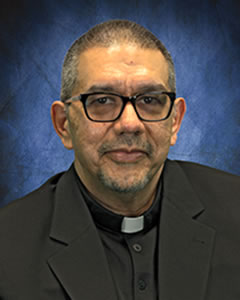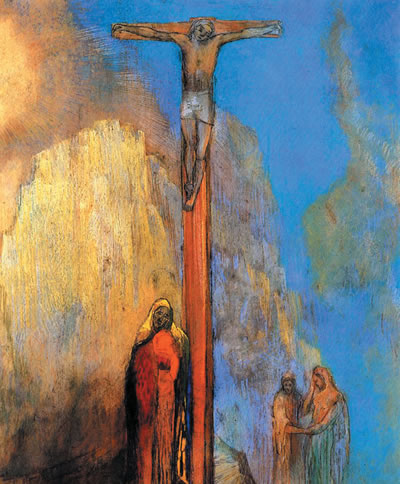
From the Director
The South American country, Colombia, suffered a devasting bloody civil war for decades. The country experienced communities vs. communities, neighbor vs. neighbor, families vs. families, brother vs. brother, etc. In the late 1990s, Fr. Leonel Narváez participated in the peace negotiations between the Colombian government and leaders of the rebel forces. Based off this experience and further studies in Harvard, Fr. Leonel became interested in developing a program for forgiveness and reconciliation. What process is needed to begin healing? Thus, he created ESPERE, a Spanish acronym for School of Forgiveness and Reconciliation. In 2009, I participated in ESPERE while living in Lima, Peru. Through ESPERE, I came to understand that, although inter-connected, forgiveness and reconciliation are two separate processes.
 Forgiveness is the first step towards reconciliation. Forgiveness is about how I relate to the offense, the events of what happened to me. Like many, I have been hurt before by others. My mind was cluttered with how the universe was going to bring me justice. If the offender’s name was mentioned, nothing but negative energy came forth from me. In time, carrying these negative thoughts consumed energy and prevented happiness. Eventually, I had to learn that forgiving was not for the offender, it was for myself so that the offender and events don’t dominate my perspective on life. The saying of “forgive and forget” is misleading. We cannot forget but we don’t have to let the memory prevent happiness. Much like the Resurrected Body of Jesus that was no longer on the Cross but carried the wounds of the Cross. The wounds are a reminder of what He lived through but, no longer hold any power over Him.
Forgiveness is the first step towards reconciliation. Forgiveness is about how I relate to the offense, the events of what happened to me. Like many, I have been hurt before by others. My mind was cluttered with how the universe was going to bring me justice. If the offender’s name was mentioned, nothing but negative energy came forth from me. In time, carrying these negative thoughts consumed energy and prevented happiness. Eventually, I had to learn that forgiving was not for the offender, it was for myself so that the offender and events don’t dominate my perspective on life. The saying of “forgive and forget” is misleading. We cannot forget but we don’t have to let the memory prevent happiness. Much like the Resurrected Body of Jesus that was no longer on the Cross but carried the wounds of the Cross. The wounds are a reminder of what He lived through but, no longer hold any power over Him.
Reconciliation relates specifically to what relationship I will have with the offender. There can be no reconciliation unless there is forgiveness. If the offender is alive, what type of relationship can there be? Through ESPERE, I learned there are three possibilities. First, is the “Separate Worlds” model. Basically, it means there is no relationship. Although I no longer harbor negative feelings toward the offender, I keep in my world, the offender in his/her world. Second is “Interconnected Worlds.” In this model, I come in contact with the offender only when it is necessary. Our contact is cordial and civil but doesn’t go beyond there. An example is a divorced couple who only meet to discuss and resolve issues with their children. Otherwise, they are not in contact with one another. Lastly, is the “One World.” In this model, I have reforged my relationship with the offender. An example will be a couple that experienced infidelity by one. Through counseling and much dialogue, the couple remain together and forge a new relationship. Which model is the best? The one that is possible and won’t rob my peace and happiness. As the saying goes, the greatest revenge is to be happy.